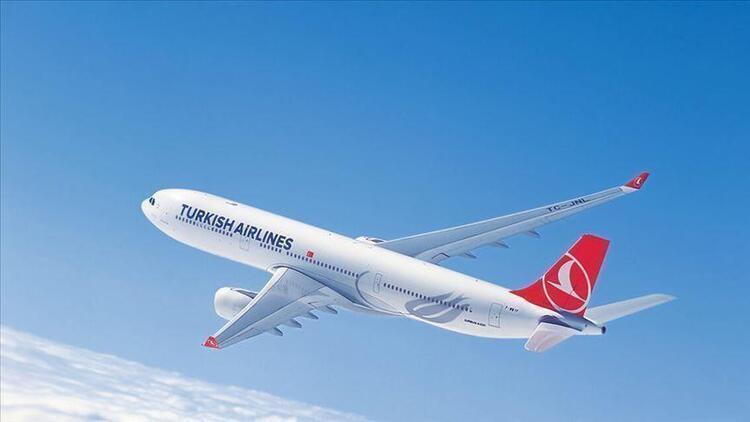Turkish Airlines remains at top with largest network
ISTANBUL

Turkish Airlines served 40.5 million passengers in the first 11 months of 2021 and increased the number of aircraft in its fleet to 373, according to a company statement released on Dec. 30.
Turkey’s flag carrier is flying to 328 destinations in 128 countries as of end-2021, marking the largest flight network of an airline in the world.
In 2014, when company chairperson İlker Aycı took the helm, Turkish Airlines was flying to 261 destinations in 108 countries with a fleet of 261.
During the coronavirus pandemic, which brought global commercial air passenger traffic to a halt, many aircraft in Turkish Airlines’ fleet were allocated for Turkish Cargo.
Increasing its global market share above 5 percent, Turkish Cargo entered the top five air freighters list in the world.
The airline managed to wrap up the third quarter of 2021 with a net profit of $735 million. As for cargo, which marks 28 percent of the total revenue, a 132 percent gain was recorded versus the same period in 2019.
Aycı recently accepted the Airline Passenger Experience Association (APEX) Five Star Global Airline award in Los Angeles.
He was also honored with the CEO Lifetime Achievement Award given by APEX, the first time such an achievement has been awarded to a European aviation leader.
“The airline’s advancements in health safety, service, and sustainability within one of the youngest fleets in the world underline the best of the best,” said APEX CEO Joe Leader.
The airline was also recognized during the 33rd Annual Best in Business Travel Awards, voted by readers of Business Traveler as the airline with the best corporate program, along with a number of other accolades.
During the third quarter of 2021, Turkish Airlines carried a total of 16.5 million passengers and reached 81 percent of its passenger capacity in the same period of 2019.
It maintained an enviable 82.4 percent load factor on domestic flights and 69.6 percent load factor on international flights.
“The most important asset of an airline is the crew is it’s dedicated staff. Our slogan is that together we’re stronger. Together we’re a family,” said Aycı during a keynote interview at the APEX conference, underlining that all was done without having to launch any layoff waves, nor take any government bailout assistance during the pandemic.
Turkish Airlines will increase wages by more than 65 percent in the first half of next year.
On Dec. 25, Aycı thanked labor union Hava-İş for their collaboration. Refraining from layoffs, Turkish Airlines made an agreement with the labor union to decrease wages last year. “We will continue rising together and carry our flag with proud,” he said.
Turkish Airlines staff members will also be paid a perk worth a monthly salary for the signature of the collective agreement and a premium worth a gross monthly salary next year.
For the second half of 2022, Turkish Airlines will increase wages at a rate 5 percentage points higher than the annual inflation rate.
Turkey’s flag carrier has exceeded the pre-pandemic level in profitability in the first nine months of this year, racking up $1.4 billion in revenues before interest and tax.
Turkish Airlines reached over 1,000 flights a day on June 25 for the first time since COVID-19 struck.
















